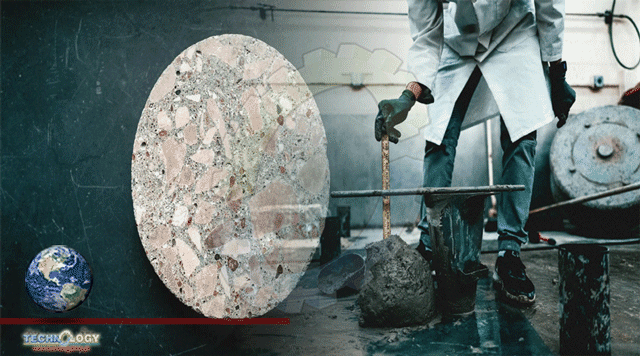The company, formerly named Facebook, used an artificial intelligence algorithm to try to come up with new concrete recipes that release less carbon dioxide.

What’s happening
Meta, Facebook’s parent company, has used AI to create new formulas for concrete, which emit up to 40% less carbon dioxide.
Why it matters
Cutting carbon dioxide emissions is crucial to fight climate change, and concrete is responsible for 8% of emissions of the greenhouse gas worldwide.
What’s next
Facebook is testing its concrete formulas at a new data center in Illinois and hopes improvements will make low-carbon concrete cure faster.
Concrete accounts for 8% of the world’s carbon dioxide emissions, but Meta is using AI to try to find new recipes that are less of a problem for climate change.
The company, formerly named Facebook, used an artificial intelligence algorithm to try to come up with new concrete recipes that release less carbon dioxide. In tests at a new data center it’s building in DeKalb, Illinois, Meta found that some formulas were strong enough and reduced carbon dioxide emissions by 40%.
That’s an interesting result, but it comes with caveats. For one thing, the new formulas can take longer to cure, and waiting for concrete foundations, walls, floors and other structures is an important factor in construction speed. For another, the new mixes add complexity to construction.
Meta’s low-carbon concrete mixes “significantly exceeded” the company’s strength requirements in tests one and four weeks after it was poured, said Amruta Sudhalkar, manager of Meta’s data center sustainability program. “We believe that in principle, it could replace conventional concrete as long as the materials are available at the right costs, and construction people are OK with longer early curing times,” Sudhalkar said.
Climate change is an enormous problem caused by humans pumping billions of tons of carbon dioxide and other greenhouse gases into the atmosphere for decades. Its effects include worse floods, droughts, storms and potential disruption to agriculture. Companies and governments are struggling to reduce humans’ carbon footprint, though, and keeping the average temperature rise below 2 degrees Celsius looks barely achievable.
The climate crisis
Limiting Global Warming to Just Below 2 Degrees Possible if Climate Pledges Met in Full
Microsoft: We Need More Carbon Capture Businesses to Fight Climate Change
Google, Facebook, Stripe Have a $925M Plan to Capture Carbon Pollution
In 2020, Meta reached carbon neutrality for its own operations and for the energy it consumes, so-called Scope 1 and Scope 2 emissions. It’s working on carbon neutrality for Scope 3, which broadens carbon dioxide accounting to capture Meta’s broader influence, including the effects of suppliers that sell products to Meta and the power consumed when people use Meta services like Facebook. Meta aims for Scope 3 carbon neutrality by 2030.
Meta’s AI team developed the new concrete formulas in partnership with the University of Illinois at Urbana-Champaign. There are a vast number of possible formula variations, but AI can be good at drawing conclusions from complex data, for example predicting the shape of proteins the body makes from instructions in DNA.
In partnership with concrete maker Ozinga Bros., Meta created the suggested formulas and tested them to narrow the list down to candidates for real-world testing.
Meta’s requirements on strength “are at least as stringent as the industry standard, if not more stringent,” so the results could help many more construction efforts, Sudhalkar said. “We are working on improving our formulas for early curing times, so stay tuned.”
In one way, concrete also could actually be part of the climate change solution. Startups including Carbon Cure, Carbicrete and Carbon Limit are working on injecting carbon dioxide into concrete to keep it permanently out of the atmosphere. Economical carbon sequestration is one of the challenges for fighting climate change.
And concrete producers have made some efforts to lower their carbon footprint, including the Cement Sustainability Initiative and the Global Cement and Concrete Association’s net zero roadmap.
This news was originally published by CNET.